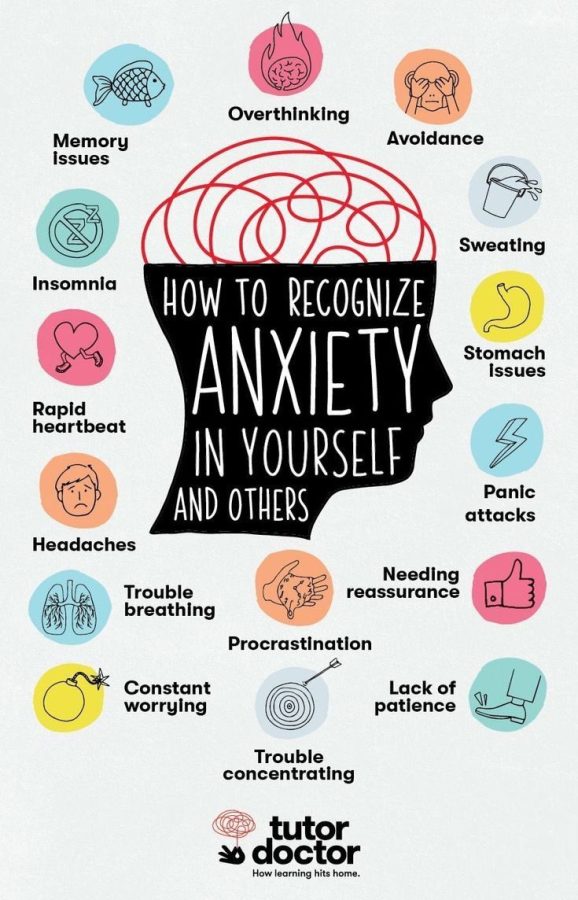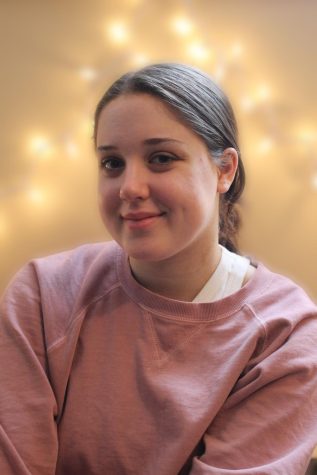Anxiety increases among college students
National and international unrest mount on top of preexisting stressors
The state of the world — a global pandemic, national and international unrest — has exacerbated many young adults’ fear, anxiety and mental health issues. Although the pandemic seems to be subsiding, many are still feeling its effects.
April 6, 2022
Since the onset of the COVID-19 pandemic, the mood at many colleges and universities has been strained. As it is finally and slowly seeming like the pandemic days are becoming a thing of the past, students are faced with new worries of national and global turmoil and unrest – all on top of the typical struggles of being a college student.
Still reeling from the effects of COVID-19, some Gannon University students are feeling like they’re being bombarded – and many are sick of living through historical events.
“In a world full of violence, war and even a pandemic, there is no better word to describe it than chaotic,” Hannah Barnett, a sophomore biology pre-med major, said. “I think it’s quite unfortunate that the world continues to have wars when history has proven to repeat itself. Nobody deserves to go through what some are right now.”
Barnett said that these stressors can affect one’s certainty of the future, which in turn can induce anxiety.
“I think sometimes the world we live in causes us to question whether our career path is the right thing to do,” Barnett said.
Largely because of the pandemic, people have had to learn to adapt to things they never thought they would have to adapt to.
“Although COVID may never go away, we have learned to overcome and accept the challenges we may face when dealing with the pandemic,” Barnett said.
Many are still feeling the effects of the pandemic, said Michael Madonia, a staff therapist at Gannon.
“We should not underestimate the impacts and the lasting effects of social isolation on a person’s mental health,” Madonia said. “Just because the mask mandate has been lifted does not mean we are not all suffering at least some residual effects.”
While many are experiencing mental health issues because of these things, Madonia said that everyone handles them differently.
“Everyone is unique in how they handle fear and anxiety,” Madonia said. “If someone had anxiety before they came to college, or before the COVID-19 pandemic, then these experiences generally magnify their anxiety.”
Strategies like adequate sleep, nutrition, positive social relationships, exercise, gratitude and prayer, meditation and relaxation are helpful in preventing anxiety, but once anxiety does become a problem and is getting in the way of everyday life, a different set of strategies is needed, Madonia said.
“Generally speaking, people use avoidance and avoidance strategies to cope with overwhelming anxiety,” Madonia said. “But our anxiety can act like a real bully and chase after us when we try to avoid it, thus our avoidance may only work in the short run.
“In fact, what is indicated is to confront our anxiety and do our best to live fully despite or in spite of those anxious feelings. This can be a very difficult thing to do, and counseling can be very effective in helping this process.”
Raeann Asel, a sophomore nursing major, said that stress tends to compound, leading her to stress about why she is stressed. Consequently, when Asel is stressed, she is not able to make time for the people she loves and the things she wants to do.
“I never thought it would take so much from me, including friends and family,” Asel said.
Asel said she also feels stress from parental pressure.
“My parents put so much pressure on me to make sure I am getting good grades and keeping a good reputation so I can keep scholarships and impress the rest of my family,” Asel said.
“I am the first child in my family that is doing well and the amount of pressure that creates is absurd. I am expected to be the ‘golden child’ where I am expected to save my money, be a good influence, finish school and get a good job.”
To relieve stress, Asel paints or does puzzles.
Anthony Sinito, a sophomore physical therapy major, said that it is frustrating that during such tumultuous times, it seems as though few people really care about what matters.
“Personally, I feel the world is in absolute disarray, but people tend to only care about what everyone else cares about,” Sinito said. “That mob mentality is detrimental to our society.”
Sinito said that the media can also be overwhelming, especially when it comes to the current conflict in Ukraine.
“I hate the dramatization of the war that the media portrays, as though there’s a good and evil,” Sinito said. “There is no black and white in war, but it’s easier on people’s consciences to think of it like that. What people should be focusing on is whether Putin will stop at Ukraine.”
To Sinito, it feels like the U.S. is at a fork in the road. The conflict in Ukraine is so volatile, leaving him to wonder how or when the U.S. and its citizens will be seriously impacted.
“It’s surreal going through my day-to-day life despite the chance that we may all be dead in a few months,” Sinito said.
“It’s a scary thing, and while we can make peace with that possibility, we can never make peace with the timing. Whether or not we’ll have closure on that is uncertain.”
Sinito said going to the gym, hiking and reading are all ways he decompresses and escapes from the mounting pressures of the world and of being a young adult. Venting to friends and talking about how he is feeling is also integral to Sinito in maintaining a sense of peace.
“Talking to friends about what is concerning me and practicing introspection when it comes to decision making helps put things into perspective,” Sinito said.
ANNA MALESIEWSKI






